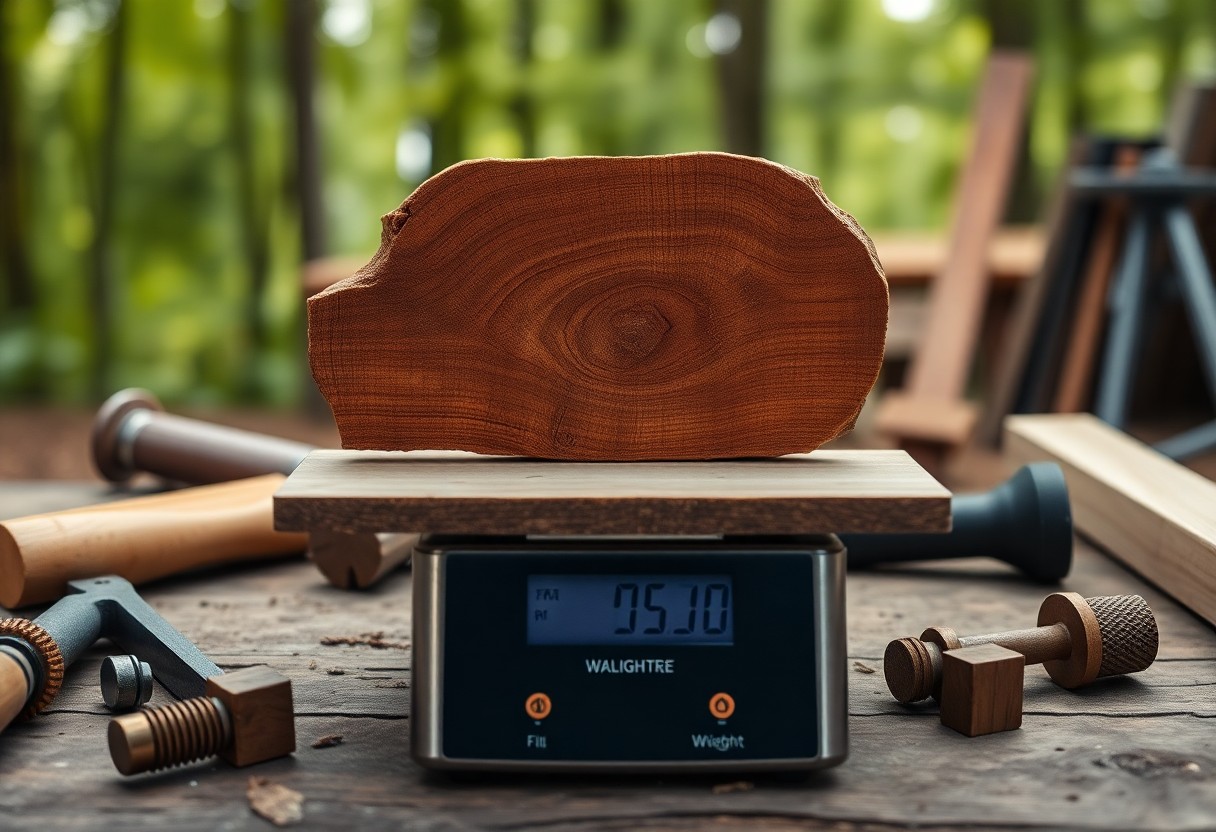I’ve been there too, standing in front of a pile of lumber, trying to figure out how much weight my wood gate will need to support.
It’s a daunting task, especially if you’re new to DIY projects. But fear not, I’ve got you covered.
In this post, I’ll walk you through a simple calculator to determine the weight of your wood gate, so you can choose the right hardware and ensure your gate stays safe and functional. Let’s get started and take the guesswork out of your project.
What Affects Wood Gate Weight Calculator
The weight of your wood gate is influenced by several factors, which I’ll outline below. Understanding these factors will help you make informed decisions when designing and building your gate.
Material Selection
Beneath the surface of your wood gate lies the material selection, which significantly impacts its weight. The type of wood you choose, for instance, can add or subtract pounds. Dense hardwoods like oak or maple will weigh more than softwoods like pine or fir.
Gate Size and Shape
Across the spectrum of gate designs, size and shape play a significant role in determining weight. A larger gate with more complex curves or angles will naturally weigh more than a smaller, simpler one.
Gate size, in particular, has a profound impact on weight. As you increase the width and height of your gate, the weight increases exponentially. This is because larger gates require more material, which adds up quickly. I’ve seen gates that are just a few inches wider or taller than average weigh significantly more due to the increased material usage.

Calculating Wood Gate Weight
It’s imperative to calculate the weight of your wood gate to ensure it’s properly supported and functional. A gate that’s too heavy can put excessive stress on the hinges and hardware, leading to premature wear and potential failure. To get an accurate calculation, you’ll need to consider the density of the wood and the gate’s dimensions.
Density of Different Woods
Among the various types of wood, density can vary significantly. For instance, cedar is relatively lightweight, while hardwoods like oak and maple are much denser. Understanding the density of your chosen wood is vital, as it directly affects the overall weight of the gate.
Formula for Weight Calculation
Beside the wood density, you’ll need to know the gate’s volume to calculate its weight. The formula is simple: weight = volume x density. By plugging in the correct values, you’ll get an accurate estimate of your gate’s weight.
In fact, to make this calculation more accessible, I’ll break it down further. Let’s say you’re building a gate with dimensions 4 feet wide, 6 feet tall, and 2 inches thick. You’ll need to calculate the volume in cubic feet, then multiply it by the density of your chosen wood. This will give you the total weight of the gate, helping you plan and design a sturdy and functional entrance for your property.
Factors to Consider
Many elements influence the weight of a wood gate, and I’ve identified the key ones to help you make an accurate calculation. When determining the weight of your gate, consider the following factors:
- Gate size and shape
- Type and density of wood used
- Hardware and fittings
- Gate frame and design
This comprehensive approach will ensure you get an accurate weight calculation for your wood gate.
Hardware and Fittings
To determine the weight of your wood gate, you need to factor in the hardware and fittings, such as hinges, latches, and rollers. These components can add significant weight to your gate, so it’s crucial to include them in your calculation.
Gate Frame and Design
About the gate frame and design, I want to emphasize that the style and material used can greatly impact the overall weight of your gate. For instance, a solid wood frame will weigh more than a hollow one.
In addition, the design of your gate can also influence its weight. For example, a gate with intricate carvings or ornate details will be heavier than a simple, flat gate. By considering these factors, you’ll get a more accurate weight calculation for your wood gate.
Common Wood Gate Weight Ranges
To give you a better understanding of what to expect, I’ve outlined some general weight ranges for wood gates. Keep in mind that these are rough estimates and can vary depending on the type of wood, design, and hardware used.
Small to Medium Gates
With smaller gates, typically ranging from 4 to 8 feet wide, you can expect weights between 50 to 200 pounds. This is because they require less material and often have simpler designs.
Large Gates and Commercial Applications
Along with increased size comes increased weight. Larger gates, often used for commercial or industrial purposes, can weigh anywhere from 500 to 2,000 pounds or more.
Commercial applications, such as those used for parking garages or high-security facilities, often require heavier-duty gates that can withstand heavy use and potential impacts.
These gates may feature reinforced frames, thicker wood, and heavier hardware, which all contribute to their increased weight. As you calculate the weight of your wood gate, be sure to consider the specific needs and demands of your project.
Tips for Minimizing Wood Gate Weight
After calculating the weight of your wood gate, you’ll want to explore ways to minimize it without compromising its strength and durability. Here are some tips to get you started:
- Selecting the right materials and design can make a significant difference.
- Opting for hollow or cored wood can reduce weight without sacrificing structural integrity.
- Using lighter yet sturdy hardware can also help.
Any adjustments you make will depend on your specific gate design and requirements.
Optimal Material Choices
Against the backdrop of weight reduction, I consider the type of wood and its density to be important factors. Lighter woods like cedar, cypress, or redwood can be excellent options, while denser woods like oak or maple may be too heavy.
Design and Construction Techniques
About the design, I focus on simplicity and clean lines. A minimalist approach can help reduce weight without compromising the gate’s functionality.
With a well-designed gate, you can achieve a perfect balance between weight and strength. For instance, using diagonal bracing can add stability without adding bulk, while a clever use of hinges and latches can distribute the weight more evenly. By applying these techniques, you can create a sturdy yet lightweight wood gate that meets your needs.
Real-World Applications
Once again, I find myself pondering the importance of accurately calculating the weight of a wood gate. It’s not just a theoretical exercise; it has real-world implications that can affect the functionality and safety of your gate.
Residential Wood Gates
Before you install a beautiful wooden gate at your home, you need to ensure it’s sturdy enough to withstand various environmental factors. A wood gate weight calculator helps you determine the ideal size and material for your gate, so it can support its own weight and any additional loads, such as wind or snow.
Commercial and Industrial Wood Gates
Applications of wood gate weight calculators extend beyond residential areas. Commercial and industrial properties often require larger, heavier gates that need to withstand heavy usage and harsh conditions.
Another aspect to consider is the frequency of use. Commercial and industrial wood gates may be opened and closed multiple times a day, which can put additional stress on the gate’s hinges and hardware. By using a wood gate weight calculator, you can ensure that your gate is designed to handle the demands of high-traffic areas, reducing the risk of damage or failure.
Summing up
As a reminder, I’ve walked you through the steps to calculate the weight of your wood gate. By considering factors like gate size, material, and hardware, you can get an accurate estimate. With this knowledge, you’ll be able to plan and prepare for your gate installation, ensuring a sturdy and secure entrance. Now, go ahead and plug in your numbers – I’m confident you’ll get the weight just right, and your gate will swing smoothly for years to come.








